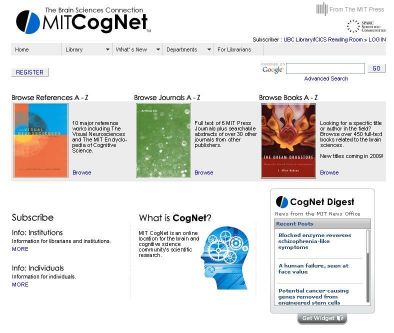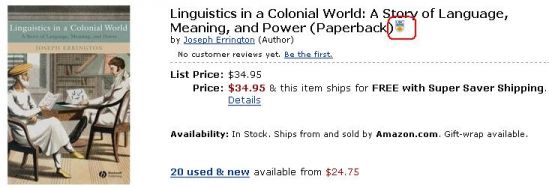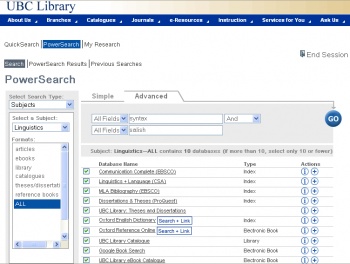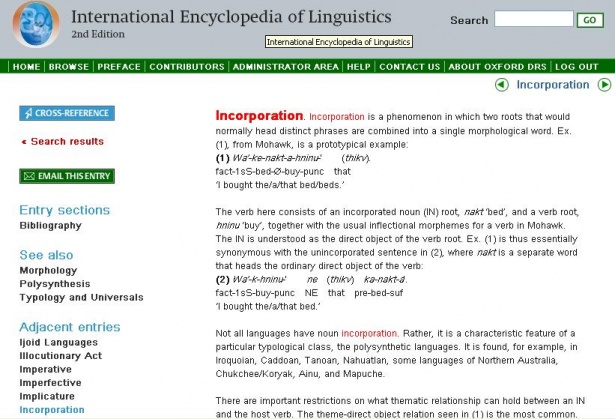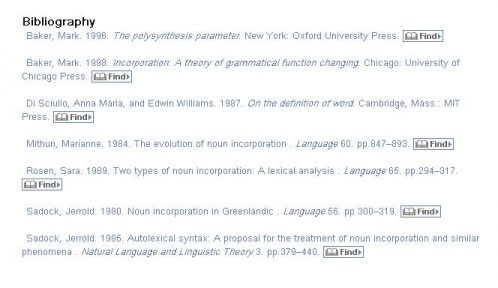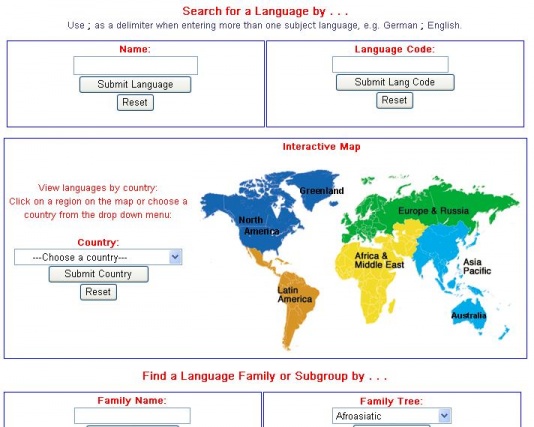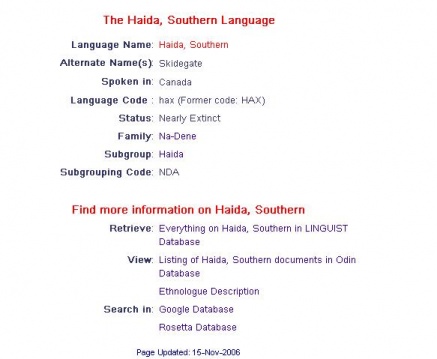
One of my favorite language sites is Omniglot (www.omniglot.com), a guide to the languages, alphabets, syllabaries and other writing systems of the world.
Developed and maintained by one man, Simon Ager, the extensive site (and gorgeous, too!) provides visual and textual information on writing systems like alphabets, abugidas, syllabaries, complex writing systems (Chinese, Egyptian Hieroglyphs, etc.), and alternative writing systems (fictional and constructed alphabets and other communication systems), as well as information on some of the languages written with these writing systems.
Links included on each language page provide further information. For example, if you go to to page for Ainu (spoken on the Japanese island of Hokkaido by an estimated 15 families), you’ll find that it is written with a version of the Japanese katakana syllabary. You’ll also find numerous links to sample texts in Ainu, links to information about the Ainu language and people, online word lists (and lessons), sound files of oral literature of the Sakhalin Ainu, and other sites of related interest.
This site may be useful for students in LING 101, Languages of the World.
Books of related interest in Koerner Library:
Coulmas, Florian. The Blackwell Encyclopedia of Writing Systems. Blackwell, 1999.
An excellent reference for all major (and some minor) writing systems.
Coulmas, Florian. The Writing Systems of the World. Blackwell, 1991.
Linguistic study of writing and writing systems.
Daniels, Peter T. & Bright, William. The World’s Writing Systems. Oxford University Press, 1996.
Detailed coverage of most all writing systems, with illustrations and text samples.
